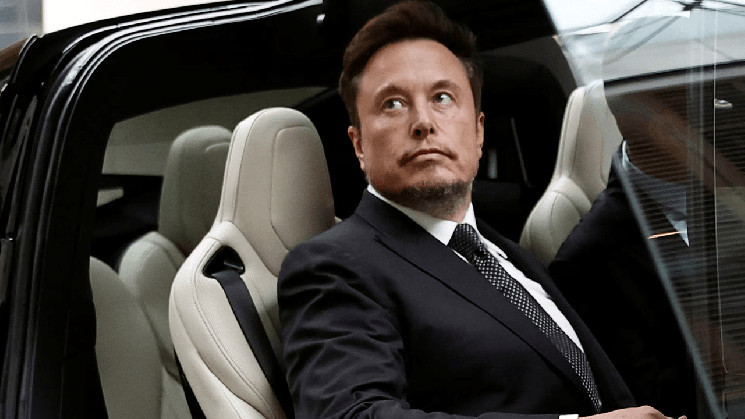In the past week there is a considerable amount of controversy focused on the newly established Department of Government Efficiency (Doge). Although opinions remain divided over its activities, artificial intelligence (AI) and blockchain technology will probably be used to better optimize government spending on a permanently distributed ledger system.
A glance at how doge AI and blockchain could unleash federal waste
Last month, DOGE was founded via an executive order signed by US President Donald Trump on January 20, 2025. Many who followed Trump and Elon Musk, the current head of Doge, understand that the entity was established to modernize federal technology and software , which improves the efficiency and productivity of the government. Doge essentially tries to reduce government waste, reduce surplus regulations and restructure federal agencies to eliminate unnecessary expenses.
Whether you prefer Donald Trump or cannot stand him, or think that the richest man in the world, Elon Musk, is terrible, that is not the point of this editorial. This report offers a theoretical study of the benefits that artificial intelligence (AI) and distributed ledger technology can offer the federal government to increase supervision and curb expenditure. It is generally acknowledged that Musk is an avid supporter of AI, and a recent report has announced that Doge is inclined to include blockchain in the efforts of the agency.
What follows is an exploration of how both technologies may be instrumental in cultivating tax responsibility in Washington.
AI’s role in improving government spending
Artificial Intelligence (AI) recently sat centrally after OpenAi’s release of Chatgpt, which heralded an era of generative video, coding and imaging. Deepseek’s market debut has really increased expectations. AI means the promise to bring about a revolution in government spending by designating inefficiencies and limiting waste.
Governments supervise extensive budgets between sectors such as health care, defense, education and infrastructure, which often fight with opaque financial flows. AI can investigate extensive data sets to discover irregularities, including double payments, inflated contractor costs, abnormal purchasing patterns or outright fraud.
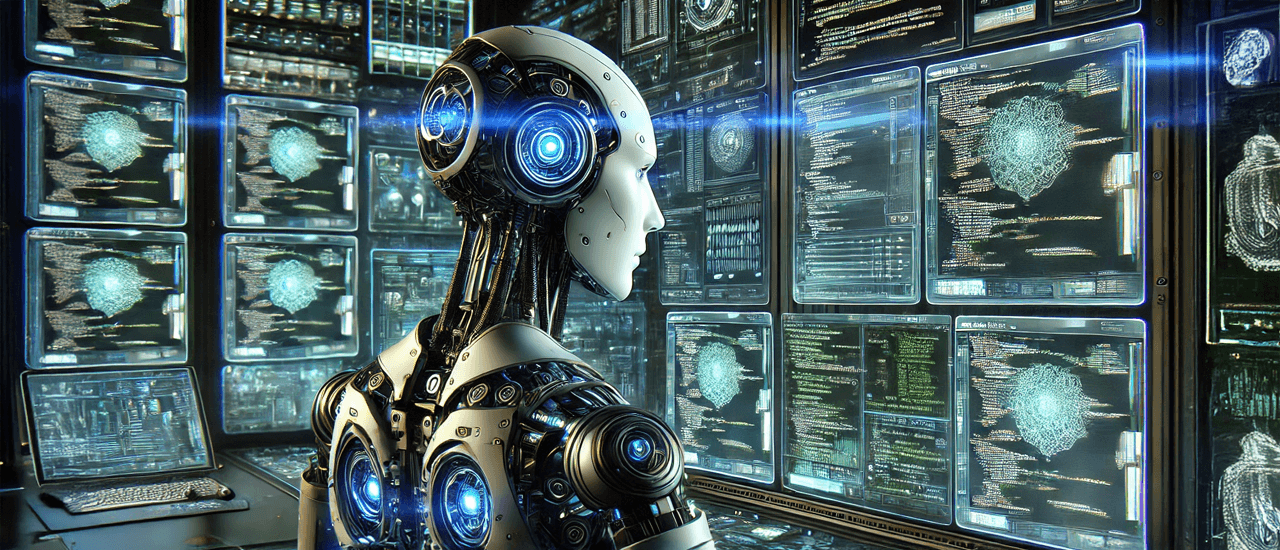
Several studies predict that artificial intelligence (AI) will add trillions of dollars to the global economy.
Machine Learning models, sharpened on historical data, are skilled in marking transactions that deviate from set standards, so that auditors can immediately examine questionable activities. In health care, for example, AI can uncover fraudulent insurance claims or unnecessary medical procedures, which keeps billions. Predictive analyzes also refine the foresight, so that governments can simulate the budget results and prevent incorrect allocations – for example by re -assigning infrastructure funds before the cost overruns occur.
In addition, AI automates routine functions such as invoice processing, reducing administrative delays and human errors. By converting unprocessed data into usable insights, AI enables policy makers to allocate resources strategically and to promote tax discipline. The combination of AI’s analytical expertise with scalable cloud computing ensures that even small municipalities can use these tools, thereby broadening access to advanced financial administration.
Blockchain’s role in securing government spending
Blockchain technology has been around since the creation of Bitcoin. Every transaction, registered on Bitcoin’s decentralized ledger, becomes permanently traceable and accessible for authorized parties – auditors, agencies or even citizens. Such a transparency can deter corruption, because changing data consensus in the network, making clandestine activities almost impossible.
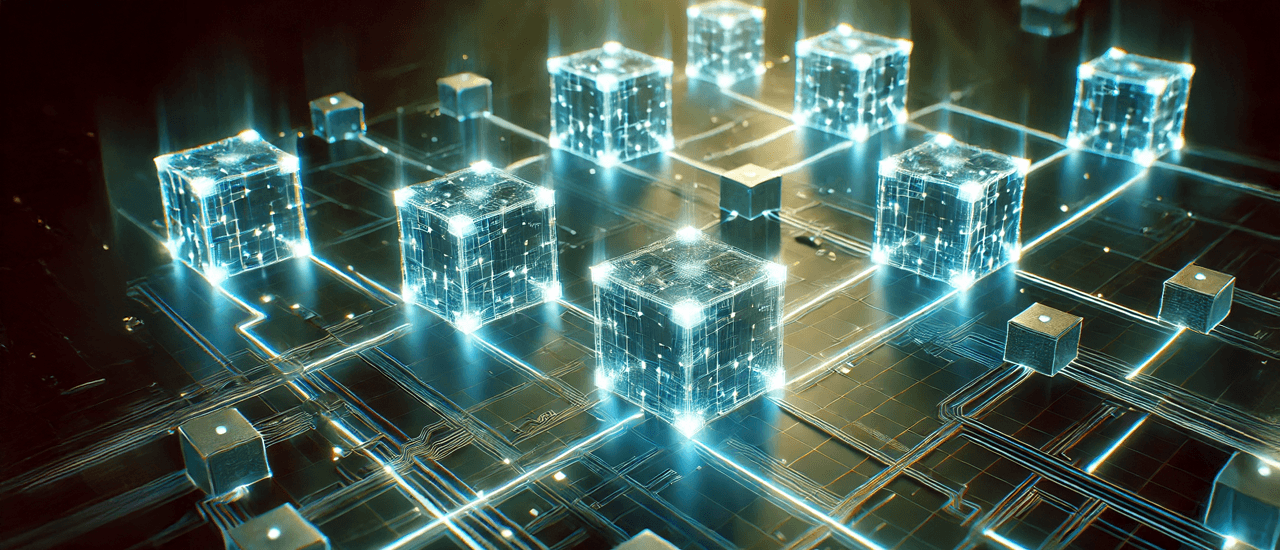
Studies also suggest that blockchain technology could add trillions to the global economy by 2030.
Another example is that smart contracts-self-executing agreements on blockchain processes can automate, such as subsidy payments or supplier payments by only releasing funds when pre-defined conditions are met. For example, infrastructure projects can automatically cause payments in verified milestone completed, so that delays and bureaucratic interference are minimized.
Public access to anonymized ledger data can further strengthen civic involvement by enabling citizens to check the expenditure and keep civil servants responsible. With disaster help, for example, Blockchain can ensure that the help reaches the intended recipients by keeping up with allocations and preventing deception. Moreover, the integration of blockchain with AI creates a safer ecosystem: AI detects irregularities, while blockchain retains the findings and generates an auditable track.
Musk’s perspective
Although Musk is currently recognized as the head of the newly established agency, it is known that the owner of X Diep has been invested in AI technology and blockchain. Initially, Musk has made considerable progress with the generative AI application Grok and Xai. We are also aware of Musk’s ‘Colossus’, a huge super -computering facility in Memphis, Tennessee, developed by his Xai. Reports indicate that the facility started with 100,000 Nvidia H100 GPUs, and establishing it as one of the largest AI calculation clusters in the world. Moreover, Colossus now works with 200,000 GPUs after a recent upgrade.
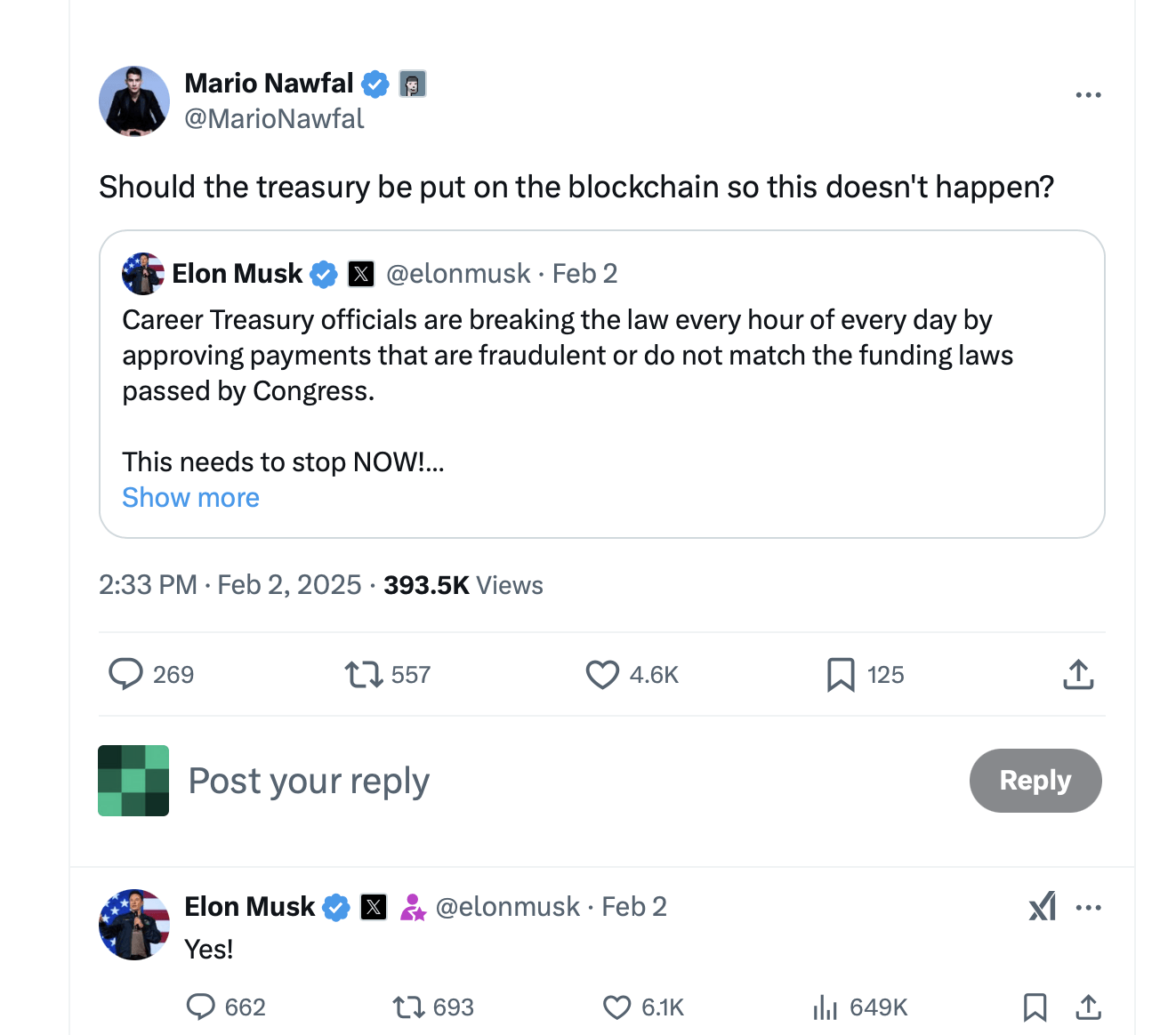
Source: Mario Nawfal via X.
Elon Musk has consistently advocated blockchain technology, which emphasizes the potential to improve transparency, efficiency and reduce costs. When X -Influencer Mario Nawfal asked if “the treasury should be put on the blockchain”, so that there are no fraudulent payments, Musk “Yes” responded. Musk and Tesla support Dogecoin (Doge) and Bitcoin (BTC), and he has often associated blockchain with financial independence and decentralization, consistent with his vision of technological progress.
AI and blockchain’s double -sided sword
Although some consider AI and Blockchain as useful, others fear that they can pave the way for a empire that is dominated by techno-oligarchs. Although AI and Blockchain offer efficiency, many claim that they run the risk of facilitating surveillance capitalism and the overaller of the state. AIs> Freeze funds, or righteous discriminatory policy. The unchanging wholesal books of blockchain could, if centralized, permanently insist sensitive data, making authoritarian tracking of individuals possible.
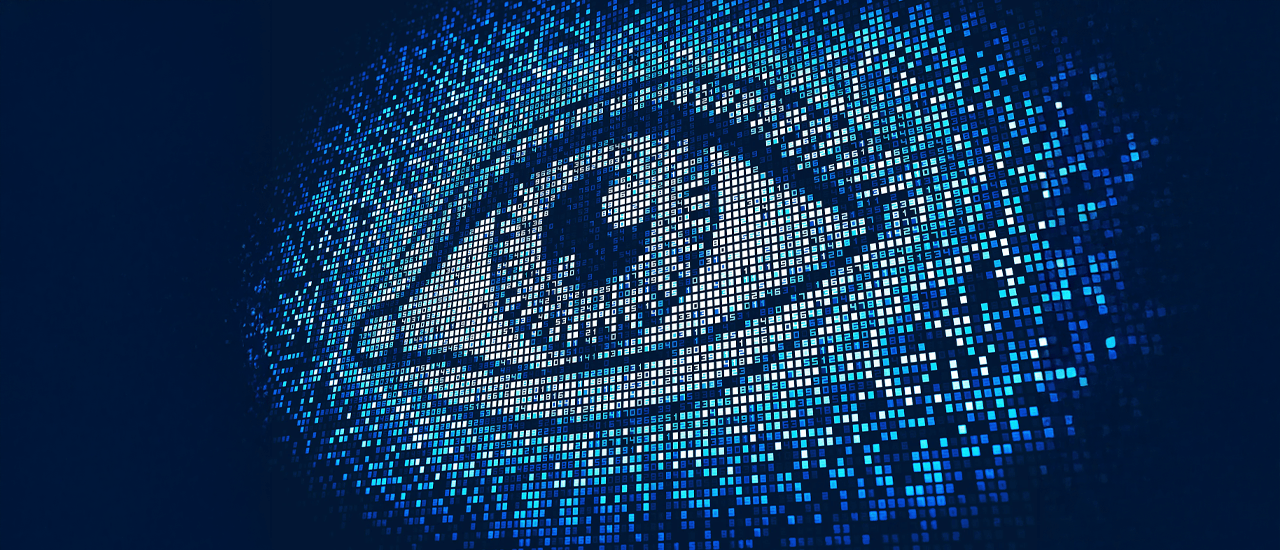
Although there are many advantages for AI and blockchain, some believe that this can lead to a techno-improved oligarchy.
Together they can facilitate automated mass surveillance-slimming contracts that limit access to welfare or AI-blockchain networks that control transactions to suppress different opinions. Absent adequate guarantees, these technologies run the risk of eroding privacy, autonomy and decentralization. However, most technologies are supplied with a double -sided sword. The American voters, however, chose Donald Trump as the 47th President of the United States, and was founded and known for a long time before he took office.
Numerous American agencies have been codified in the government via executive orders, including the Defense Intelligence Agency (DIA), the Environmental Protection Agency (EPA), the desk of alcohol, Tobacco and Firearms (ATF), the Council on Environment Quality (CEQ), The National Security Agency (NSA), the Welfare Administration, the Drug Enforcement Administration (DEA), the Federal Emergency Management Agency (FEMA) and the Office of Homeland Security.

